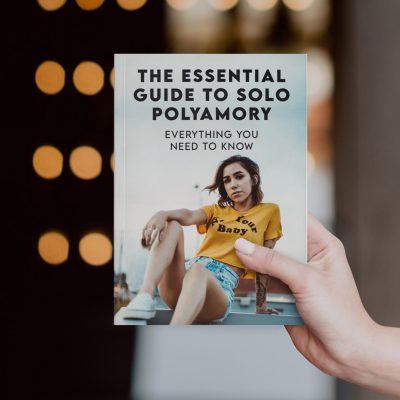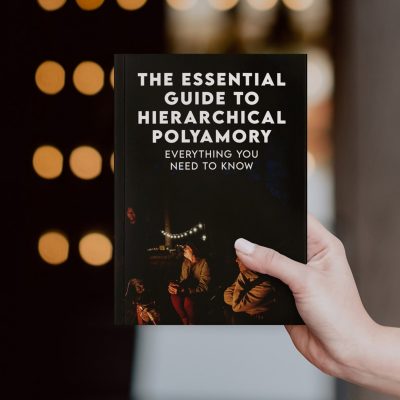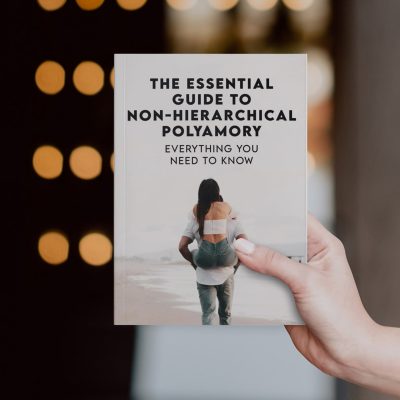Polyamorous Relationship Advice

As more people explore non-monogamous lifestyles, relationships have emerged as a vibrant and fulfilling way to experience love and connection. However, navigating the complexities of multiple relationships requires thoughtful communication, clear boundaries, and ongoing self-reflection. This guide offers practical advice, expert insights, and actionable strategies for anyone seeking to cultivate healthy, sustainable, and emotionally rich polyamorous relationships.
Quick Links to Useful Sections
- The Importance of Relationship Advice in Polyamory
- Understanding Polyamory
- What Is Polyamory?
- The Value of Polyamorous Relationship Advice
- Common Challenges in Polyamorous Relationships
- Communication Complexities
- Managing Jealousy and Insecurity
- Time and Energy Management
- Setting Clear Boundaries
- Maintaining Emotional Balance
- Expert Advice for Healthy Polyamorous Relationships
- Prioritize Open Communication
- Establish Mutual Agreements
- Practice Empathy and Active Listening
- Seek Professional Guidance
- Additional Considerations
- Legal and Social Context
- Dealing with External Stigma
- Frequently Asked Questions (FAQ)
The Importance of Relationship Advice in Polyamory
Polyamorous relationships, by their very nature, offer a dynamic and diverse approach to intimacy. They allow individuals to form multiple, consensual relationships that provide various kinds of emotional, intellectual, and physical support. However, the benefits of polyamory come with unique challenges. Unlike traditional monogamous relationships, polyamorous dynamics often involve complex communication, time management, and the careful negotiation of boundaries.
Whether you’re new to polyamory or a seasoned practitioner, having access to effective relationship advice can help you:
- Improve communication among all partners
- Establish and maintain healthy boundaries
- Manage feelings of jealousy and insecurity
- Balance time and energy among multiple relationships
- Foster personal growth while nurturing your connections
Understanding Polyamory
What Is Polyamory?
Polyamory is a form of consensual non-monogamy in which individuals maintain multiple romantic and/or sexual relationships simultaneously, with the full knowledge and consent of everyone involved. The term comes from the Greek “poly,” meaning many, and the Latin “amor,” meaning love, emphasizing the belief that love is abundant rather than finite.
In polyamorous relationships, emotional bonds can be formed with more than one person at a time. Some relationships may be structured hierarchically (with a primary partner and secondary partners), while others are non-hierarchical, with all connections valued equally. The flexibility inherent in polyamory allows each individual to tailor their relationship dynamics to their personal needs and values.
The Value of Polyamorous Relationship Advice
Navigating polyamory can be both exciting and challenging. While the freedom to form multiple connections can lead to rich, diverse experiences, it also demands a high level of emotional intelligence and effective communication. Expert advice in this area can help you understand and address common challenges, including:
- Balancing time and emotional energy between multiple partners
- Setting and maintaining clear boundaries
- Managing jealousy and insecurity
- Fostering effective communication across a network of relationships
- Ensuring all partners feel valued and respected

Love is infinite, but your calendar is brutally finite. The fantasy is deep connection; the reality is often just exhausted "calendar tetris." Promising time you don't actually have isn't romantic, it’s a recipe for burnout and broken trust. That sinking feeling when you have to cancel again? That’s the sound of overextension destroying your relationships.
This calculator forces you to confront the math of your life. Do you actually have space for another heart, or are you just setting everyone up for disappointment?

The fantasy is total autonomy and connection. The reality? It can feel like drowning in scheduling chaos and misunderstood expectations. That anxiety you feel isn’t just stress; it’s the wobble of living without a default "anchor." Without a solid architecture, Solo Polyamory stops being a life design and starts being a recipe for burnout and confusion.
The Essential Guide replaces the drift with a concrete anchor. We provide the "Solo Ethic," boundary scripts, and burnout protocols needed to protect your peace. Don't just date around—build a life that actually works for you.

Hierarchy sounds like a corporate org chart until someone gets their feelings hurt. That stomach-turning fear that you are just a "secondary" who can be fired at any time is real. If your relationship feels like a secret ranking system, you are doing it wrong.
Ambiguity is where resentment grows. The Essential Guide replaces the "who matters more" panic with a concrete charter. We provide the scripts and equity guardrails needed to protect every heart in the polycule. Stop guessing and start building.

The ideal is pure equality. The reality? It often slides into hidden rankings where someone gets hurt. That sinking feeling that you are secretly a "secondary" despite the label? That is your intuition detecting couple privilege. Ambiguity is where resentment thrives.
The Essential Guide replaces vague promises with concrete governance. We provide the charters, equity tools, and jealousy protocols needed to ensure "non-hierarchical" isn't just a fantasy. Stop guessing who matters most. Build a network that is actually fair.

The fantasy is total autonomy and connection. The reality? It can feel like drowning in scheduling chaos and misunderstood expectations. That anxiety you feel isn’t just stress; it’s the wobble of living without a default "anchor." Without a solid architecture, Solo Polyamory stops being a life design and starts being a recipe for burnout and confusion.
The Essential Guide replaces the drift with a concrete anchor. We provide the "Solo Ethic," boundary scripts, and burnout protocols needed to protect your peace. Don't just date around—build a life that actually works for you.

Hierarchy sounds like a corporate org chart until someone gets their feelings hurt. That stomach-turning fear that you are just a "secondary" who can be fired at any time is real. If your relationship feels like a secret ranking system, you are doing it wrong.
Ambiguity is where resentment grows. The Essential Guide replaces the "who matters more" panic with a concrete charter. We provide the scripts and equity guardrails needed to protect every heart in the polycule. Stop guessing and start building.
Common Challenges in Polyamorous Relationships
Communication Complexities
In a polyamorous relationship, effective communication is critical. With multiple partners involved, misunderstandings can arise more easily if clear communication channels are not established. Key challenges include ensuring that everyone is on the same page regarding boundaries, expectations, and emotional needs.
Advice: Establish regular check-ins with all partners, use active listening techniques, and consider using digital tools like shared calendars or group chats to coordinate schedules and discuss updates.
Managing Jealousy and Insecurity
Jealousy is a natural emotion that can occur in any relationship. In polyamory, where multiple connections are maintained, feelings of jealousy or insecurity might be amplified. It is important to address these feelings constructively rather than letting them erode the relationship.
Advice: Practice self-awareness and mindfulness. Engage in open conversations about jealousy with your partners, and consider seeking guidance from a therapist experienced in non-monogamous dynamics to develop coping strategies.
Time and Energy Management
Balancing time between multiple relationships can be challenging. Without proper time management, some partners might feel neglected or overwhelmed.
Advice: Create a realistic schedule that allocates dedicated time for each relationship, as well as time for self-care. Prioritize quality over quantity in your interactions, and be flexible to adjust schedules as needed.
Setting Clear Boundaries
Clear boundaries are essential for preventing misunderstandings and ensuring that all partners feel secure. Boundaries may cover topics such as sexual health, emotional intimacy, time allocation, and the level of disclosure regarding external encounters.
Advice: Collaborate with your partners to define and document your boundaries. Regularly revisit and adjust these boundaries to ensure they continue to meet everyone’s needs.
Maintaining Emotional Balance
With the variety of relationships in a polyamorous network, it can be difficult to maintain emotional equilibrium. Ensuring that you and your partners have space for personal growth while also nurturing your connections is key.
Advice: Invest in self-care practices and consider individual counseling to help manage stress and foster personal development. Encouraging each partner to pursue their interests can enrich the overall network and prevent emotional burnout.
Expert Advice for Healthy Polyamorous Relationships
Prioritize Open Communication
Continuous, honest dialogue is the cornerstone of any successful polyamorous relationship. Regular communication helps prevent misunderstandings and keeps all partners informed about each other’s needs and boundaries.
Tip: Schedule regular "relationship meetings" where all partners can discuss their feelings, share updates, and review boundaries.
Establish Mutual Agreements
Develop a set of guidelines that everyone agrees on. This might include agreements on sexual health practices, time management, and the extent of information sharing regarding external relationships.
Tip: Consider drafting a relationship agreement that outlines these rules and review it periodically to ensure it remains relevant.
Practice Empathy and Active Listening
Empathy is crucial when managing multiple relationships. Strive to understand each partner's perspective and validate their feelings. Active listening can prevent misunderstandings and help build a deeper emotional connection.
Tip: Use “I” statements and reflective listening techniques during conversations to ensure that each partner feels heard and respected.
Seek Professional Guidance
Sometimes, the complexities of polyamory can benefit from professional support. Therapists who specialize in non-monogamous relationships can provide tailored advice and help you develop effective communication and conflict-resolution strategies.
Tip: If challenges persist, consider scheduling sessions with a therapist experienced in polyamory to gain additional insights and tools.
Additional Considerations
Legal and Social Context
Currently, polyamorous relationships are not typically recognized by legal systems in the same way as monogamous marriages. While this may not affect the personal dynamics of your relationship, it is important to be aware of the legal and social context in which you live.
Advice: Consider creating personal agreements to outline your commitments and protect your interests, and seek legal advice if necessary, especially when it comes to matters such as property, finances, or child custody.
Dealing with External Stigma
Despite growing acceptance, polyamory may still face social stigma or misunderstanding. Being prepared to address these challenges is important for your emotional well-being.
Advice: Educate yourself and your community about the benefits and realities of polyamory. Joining supportive online communities and local groups can help you connect with others who share your experiences.
Frequently Asked Questions (FAQ)
1. What is polyamory?
Polyamory is the practice of engaging in multiple consensual romantic or sexual relationships simultaneously, with all partners fully aware of and consenting to the arrangement.
2. How is polyamory different from monogamy?
Unlike monogamy, which involves an exclusive relationship between two people, polyamory allows for multiple emotional and intimate connections. This can lead to a more diverse support network and richer emotional experiences.
3. What are the common challenges in polyamorous relationships?
Common challenges include managing jealousy, balancing time and emotional energy, establishing and maintaining clear boundaries, and ensuring effective communication among multiple partners.
4. What strategies can help manage jealousy in a polyamorous relationship?
Effective strategies include open communication, regular check-ins, active listening, and sometimes seeking the guidance of a therapist experienced in non-monogamous dynamics.
5. How can I improve communication in my polyamorous network?
Regular, structured discussions, using digital tools for scheduling and updates, and practicing active listening and “I” statements can greatly enhance communication.
6. Are there legal protections for polyamorous relationships?
Most legal systems do not formally recognize polyamorous relationships like they do monogamous marriages, so many polyamorous individuals create personal agreements and rely on community support for protection.
7. Where can I find additional resources on polyamory?
Additional resources include books such as "The Ethical Slut" by Dossie Easton & Janet Hardy and "More Than Two" by Franklin Veaux & Eve Rickert, podcasts like "Multiamory" and "Polyamory Weekly," and online communities such as r/polyamory.
Resources and Community Support: Your Next Steps
- "The Ethical Slut" by Dossie Easton & Janet Hardy – A foundational book that offers insights into ethical non-monogamy and helps build healthy polyamorous relationships.
- "More Than Two" by Franklin Veaux & Eve Rickert – A guide with practical advice on managing multiple relationships and understanding the dynamics of polyamory.
- Podcasts: Listen to "Multiamory" and "Polyamory Weekly" for engaging discussions and personal stories on polyamorous lifestyles.
- Online Communities: Join forums such as r/polyamory to exchange ideas, learn from others, and receive support.
- Workshops and Webinars: Attend events focused on relationship psychology and ethical non-monogamy to expand your knowledge and connect with like-minded individuals.
By exploring these resources and applying the practical strategies outlined in this guide, you can develop a clear, informed understanding of polyamorous relationships and learn how to build fulfilling, balanced connections that enrich your life. Embrace continuous learning, open dialogue, and self-reflection as you navigate the diverse landscape of consensual non-monogamy.

Love is infinite, but your calendar is brutally finite. The fantasy is deep connection; the reality is often just exhausted "calendar tetris." Promising time you don't actually have isn't romantic, it’s a recipe for burnout and broken trust. That sinking feeling when you have to cancel again? That’s the sound of overextension destroying your relationships.
This calculator forces you to confront the math of your life. Do you actually have space for another heart, or are you just setting everyone up for disappointment?

The fantasy is total autonomy and connection. The reality? It can feel like drowning in scheduling chaos and misunderstood expectations. That anxiety you feel isn’t just stress; it’s the wobble of living without a default "anchor." Without a solid architecture, Solo Polyamory stops being a life design and starts being a recipe for burnout and confusion.
The Essential Guide replaces the drift with a concrete anchor. We provide the "Solo Ethic," boundary scripts, and burnout protocols needed to protect your peace. Don't just date around—build a life that actually works for you.

Hierarchy sounds like a corporate org chart until someone gets their feelings hurt. That stomach-turning fear that you are just a "secondary" who can be fired at any time is real. If your relationship feels like a secret ranking system, you are doing it wrong.
Ambiguity is where resentment grows. The Essential Guide replaces the "who matters more" panic with a concrete charter. We provide the scripts and equity guardrails needed to protect every heart in the polycule. Stop guessing and start building.

The ideal is pure equality. The reality? It often slides into hidden rankings where someone gets hurt. That sinking feeling that you are secretly a "secondary" despite the label? That is your intuition detecting couple privilege. Ambiguity is where resentment thrives.
The Essential Guide replaces vague promises with concrete governance. We provide the charters, equity tools, and jealousy protocols needed to ensure "non-hierarchical" isn't just a fantasy. Stop guessing who matters most. Build a network that is actually fair.

The fantasy is total autonomy and connection. The reality? It can feel like drowning in scheduling chaos and misunderstood expectations. That anxiety you feel isn’t just stress; it’s the wobble of living without a default "anchor." Without a solid architecture, Solo Polyamory stops being a life design and starts being a recipe for burnout and confusion.
The Essential Guide replaces the drift with a concrete anchor. We provide the "Solo Ethic," boundary scripts, and burnout protocols needed to protect your peace. Don't just date around—build a life that actually works for you.

Hierarchy sounds like a corporate org chart until someone gets their feelings hurt. That stomach-turning fear that you are just a "secondary" who can be fired at any time is real. If your relationship feels like a secret ranking system, you are doing it wrong.
Ambiguity is where resentment grows. The Essential Guide replaces the "who matters more" panic with a concrete charter. We provide the scripts and equity guardrails needed to protect every heart in the polycule. Stop guessing and start building.
Aging And Long Term Care Planning As Solo Poly
Attachment Styles And Solo Polyamory
Autonomy And Self Partnership As Foundations
Avoiding Avoidance Disguised As Autonomy
Avoiding Being Treated As An Accessory Relationship
Balancing Independence And Intimacy
Balancing Multiple Partners Without Burnout
Barrier Use Conversations With Multiple Partners
Boundaries Versus Rules In Solo Poly Relationships
Breakups And Grief While Staying Solo
Building Emotional Availability As Solo Poly
Caregiving And Illness Support Without A Nesting Partner
Co Parenting Agreements And Boundaries
Co Parenting And Family Building As Solo Poly
Coming Out As Solo Polyamorous
Common Mistakes Partners Make With Solo Poly People
Common Mistakes Solo Poly People Make
Common Myths About Solo Polyamory
Communication Check Ins That Fit Solo Poly
Community And Chosen Family For Solo Poly People
Compersion And Neutrality Toward Partner Dating
Conflict Resolution Without Couple Default
Core Values Of Solo Polyamory
Creating Agreements That Preserve Independence
Creating Secure Attachment Without Traditional Milestones
Dating People Who Want Escalation
De Escalation As A Healthy Choice
Decentering Couple Norms And Escalator Scripts
Deciding Whether Solo Polyamory Is Right For You
Defining Relationship Depth Without Shared Living
Defining Success Without Traditional Milestones
Designing A Sustainable Solo Poly Life
Digital Safety And Privacy
Disability And Access Needs As Solo Poly
Emergency Contacts And Support Planning
End Of Life Planning And Legal Documents
Energy Management And Overextension Risks
Financial Independence And Entanglement Decisions
Finding Solo Poly Friendly Community
Friendships As Core Support Structures
Gifts Trips And Resource Boundaries
Handling Being The Newest Partner
Handling Judgment From Monogamous Culture
Handling Judgment From Poly Communities
Handling Last Minute Plan Changes
Holidays And Special Occasions As Solo Poly
Housing Choices And Living Alone
How To Disclose Solo Polyamory Early While Dating
How To Explain Solo Polyamory To Partners
In Person Events And Support Networks
Intersectionality In Solo Poly Experiences
Long Distance Relationships And Solo Poly
Maintaining Rituals Without Domestic Integration
Maintaining Self Partnership Through Loss
Managing Insecurity Without Default Reassurance
Managing Metamour Dynamics Without Centering A Couple
Managing Nre Without Losing Yourself
Navigating Jealousy As A Solo Poly Person
Navigating Marriage Offers As Solo Poly
Navigating Partners With Nesting Or Spouses
Pacing New Connections Ethically
Parallel Versus Kitchen Table Preferences
Parenting Without A Primary Partner Model
Pregnancy And Fertility Conversations For Solo Poly
Privacy And Information Sharing Consent
Processing Loneliness While Staying Solo
Protecting Personal Time Without Withholding Connection
Quality Time When You Do Not Share A Home
Race Gender And Class Factors In Solo Poly
Religion Culture And Family Expectations
Relocation And Maintaining Connections
Repair After Misunderstandings With Partners
Responding To Requests For Primary Status
Risk Profiles And Informed Consent
Screening For People Who Respect Autonomy
Self Worth Outside Relationship Status
Setting Expectations With Highly Partnered People
Sexual Health Agreements As A Solo Poly Person
Shared Housing With Friends And Community
Signs Solo Polyamory Is Working Well
Social Media Boundaries And Visibility
Solo Polyamory And Career Mobility
Solo Polyamory And Commitment
Solo Polyamory And Mental Health Support
Solo Polyamory And Metamour Relationships
Solo Polyamory Versus Being Single
Solo Polyamory Versus Non Hierarchical Polyamory
Solo Polyamory Versus Relationship Anarchy
Substance Use Boundaries And Consent
Testing Schedules And Disclosure Practices
The History And Evolution Of Solo Polyamory
Therapy And Coaching For Solo Polyamory
Time And Scheduling As A Solo Poly Person
Transparency Without Being Managed
Travel And Overnights Without Implied Escalation
Warning Signs Of Isolation Masquerading As Autonomy
What Commitment Looks Like Without Nesting
What Solo Polyamory Is And What It Is Not
Why People Choose Solo Polyamory
Writing A Solo Poly Dating Profile
Accountability When Harm Occurs
Aging And Long Term Planning
Alternatives To Veto Policies
Attachment Styles And Hierarchy
Avoiding Disposable Partner Dynamics
Avoiding Entitlement In Primary Relationships
Avoiding Objectification And Ranking Language
Blended Families And Co Parenting Dynamics
Boundaries Versus Rules In Hierarchical Contexts
Caregiving And Illness Decisions
Choosing Hierarchy Intentionally
Common Challenges Faced By Secondary Partners
Common Mistakes Primary Partners Make
Common Mistakes Secondary Partners Make
Common Myths About Hierarchical Polyamory
Communicating Limits Without Devaluing Others
Community Perception Of Hierarchical Polyamory
Compersion When Time And Resources Are Unequal
Consent And Transparency In Hierarchy
Consent Under Unequal Power Dynamics
Cultural And Socioeconomic Influences On Hierarchy
De Escalation Without Punishment
Deciding Whether Hierarchical Polyamory Is Right For You
Decision Making Power In Primary Relationships
Descriptive Versus Prescriptive Hierarchy
Emotional Labor Distribution Across Partners
Emotional Regulation Skills For Hierarchical Dynamics
Emotional Safety For Non Primary Partners
Ending Relationships Ethically Within Hierarchy
Ethical Foundations Of Hierarchical Structures
Ethical Storytelling About Hierarchical Relationships
Ethical Use Of Veto Power
Fear Of Replacement Or Demotion
Financial Transparency With Multiple Partners
Handling Breakups Within A Hierarchical System
Hierarchy Versus Relationship Anarchy
Holidays Vacations And Special Occasions
How Hierarchical Polyamory Differs From Non Hierarchical Polyamory
How Hierarchical Polyamory Evolves Over Time
How Privilege Shows Up In Daily Decisions
How To Disclose Hierarchy Early In Dating
Inclusion Versus Exclusion Practices
Integrating Hierarchy With Personal Values
Integrating New Partners Ethically
Intersectionality And Power In Hierarchy
Jealousy In Hierarchical Polyamory
Legal Risks And Protections
Lessons Hierarchical Polyamory Teaches About Love
Letting Go Of Hierarchy When It No Longer Fits
Living Together Versus Living Apart
Long Distance Relationships Within Hierarchy
Managing Boundary Violations
Managing Comparison Between Partners
Marriage And Legal Privilege In Hierarchical Polyamory
Measuring Fulfillment Beyond Priority Status
Navigating Attachment As A Secondary Partner
Navigating Conflicts Between Partners At Different Levels
Navigating Judgment From Non Hierarchical Communities
Ongoing Check Ins Across Relationship Levels
Opening Or Closing The Hierarchy
Parenting And Family Planning Within Hierarchy
Power Imbalances Inherent In Hierarchy
Pregnancy And Parenting Transitions
Primary Secondary And Tertiary Relationship Definitions
Privacy And Information Flow
Re Negotiating Hierarchy After Major Life Events
Rebuilding Trust After Structural Changes
Renegotiating Primary Agreements Over Time
Repair Conversations After Hierarchical Tension
Repairing Harm Caused By Hierarchical Decisions
Resentment And Unspoken Grief
Responsibilities And Expectations Of Primary Partners
Rules That Protect Versus Rules That Control
Scheduling Fairness Versus Equality
Self Worth Outside Relationship Rank
Setting Clear Expectations With New Partners
Shared Finances And Resource Prioritization
Signs Hierarchy Is Functioning Well
Supporting Mental Health Across The Network
Supporting Secondary Partners Through Transitions
The Origins And History Of Hierarchical Polyamory
The Role Of Nesting Partners
Therapy And Coaching For Hierarchical Polyamory
Time Allocation And Scheduling Priorities
Transparency Without Oversharing
Treating All Partners As Whole People
Understanding Couple Privilege
Warning Signs Of Unhealthy Hierarchy
What Hierarchical Polyamory Is And What It Is Not
What It Means To Be A Primary Partner
What It Means To Be A Secondary Partner
What People Wish They Knew Earlier
What Success Looks Like In Hierarchical Polyamory
When Hierarchy Activates Past Trauma
When Hierarchy Becomes Coercive
When Hierarchy Emerges Without Intention
When Primary Relationships Change
When Professional Support Is Needed
When Secondary Relationships Deepen
Why Hierarchy Exists In Some Polyamorous Relationships
Accountability When Harm Occurs
Aging And Long Term Planning
Alternatives To Veto Policies
Attachment Styles And Hierarchy
Avoiding Disposable Partner Dynamics
Avoiding Entitlement In Primary Relationships
Avoiding Objectification And Ranking Language
Blended Families And Co Parenting Dynamics
Boundaries Versus Rules In Hierarchical Contexts
Caregiving And Illness Decisions
Choosing Hierarchy Intentionally
Common Challenges Faced By Secondary Partners
Common Mistakes Primary Partners Make
Common Mistakes Secondary Partners Make
Common Myths About Hierarchical Polyamory
Communicating Limits Without Devaluing Others
Community Perception Of Hierarchical Polyamory
Compersion When Time And Resources Are Unequal
Consent And Transparency In Hierarchy
Consent Under Unequal Power Dynamics
Cultural And Socioeconomic Influences On Hierarchy
De Escalation Without Punishment
Deciding Whether Hierarchical Polyamory Is Right For You
Decision Making Power In Primary Relationships
Descriptive Versus Prescriptive Hierarchy
Emotional Labor Distribution Across Partners
Emotional Regulation Skills For Hierarchical Dynamics
Emotional Safety For Non Primary Partners
Ending Relationships Ethically Within Hierarchy
Ethical Foundations Of Hierarchical Structures
Ethical Storytelling About Hierarchical Relationships
Ethical Use Of Veto Power
Fear Of Replacement Or Demotion
Financial Transparency With Multiple Partners
Handling Breakups Within A Hierarchical System
Hierarchy Versus Relationship Anarchy
Holidays Vacations And Special Occasions
How Hierarchical Polyamory Differs From Non Hierarchical Polyamory
How Hierarchical Polyamory Evolves Over Time
How Privilege Shows Up In Daily Decisions
How To Disclose Hierarchy Early In Dating
Inclusion Versus Exclusion Practices
Integrating Hierarchy With Personal Values
Integrating New Partners Ethically
Intersectionality And Power In Hierarchy
Jealousy In Hierarchical Polyamory
Legal Risks And Protections
Lessons Hierarchical Polyamory Teaches About Love
Letting Go Of Hierarchy When It No Longer Fits
Living Together Versus Living Apart
Long Distance Relationships Within Hierarchy
Managing Boundary Violations
Managing Comparison Between Partners
Marriage And Legal Privilege In Hierarchical Polyamory
Measuring Fulfillment Beyond Priority Status
Navigating Attachment As A Secondary Partner
Navigating Conflicts Between Partners At Different Levels
Navigating Judgment From Non Hierarchical Communities
Ongoing Check Ins Across Relationship Levels
Opening Or Closing The Hierarchy
Parenting And Family Planning Within Hierarchy
Power Imbalances Inherent In Hierarchy
Pregnancy And Parenting Transitions
Primary Secondary And Tertiary Relationship Definitions
Privacy And Information Flow
Re Negotiating Hierarchy After Major Life Events
Rebuilding Trust After Structural Changes
Renegotiating Primary Agreements Over Time
Repair Conversations After Hierarchical Tension
Repairing Harm Caused By Hierarchical Decisions
Resentment And Unspoken Grief
Responsibilities And Expectations Of Primary Partners
Rules That Protect Versus Rules That Control
Scheduling Fairness Versus Equality
Self Worth Outside Relationship Rank
Setting Clear Expectations With New Partners
Shared Finances And Resource Prioritization
Signs Hierarchy Is Functioning Well
Supporting Mental Health Across The Network
Supporting Secondary Partners Through Transitions
The Origins And History Of Hierarchical Polyamory
The Role Of Nesting Partners
Therapy And Coaching For Hierarchical Polyamory
Time Allocation And Scheduling Priorities
Transparency Without Oversharing
Treating All Partners As Whole People
Understanding Couple Privilege
Warning Signs Of Unhealthy Hierarchy
What Hierarchical Polyamory Is And What It Is Not
What It Means To Be A Primary Partner
What It Means To Be A Secondary Partner
What People Wish They Knew Earlier
What Success Looks Like In Hierarchical Polyamory
When Hierarchy Activates Past Trauma
When Hierarchy Becomes Coercive
When Hierarchy Emerges Without Intention
When Primary Relationships Change
When Professional Support Is Needed
When Secondary Relationships Deepen
Why Hierarchy Exists In Some Polyamorous Relationships
Lost & confused by all of the terms, types and seemingly made up 3 letter acronyms?? We've got you. Check out our Ethnical Non-Monogamy Dictionary >>
Useful Interruption: Not sure which relationship vibe fits you best? Take the Ultimate Relationship Test, it will give you details into your natural relationship style. Then, dive into our binge-worthy guides, from the tried-and-true to the “wait, that’s a thing?", and find the perfect relationship type for your life.
Now back to the main article but yeah take the Ultimate Relationship Test
